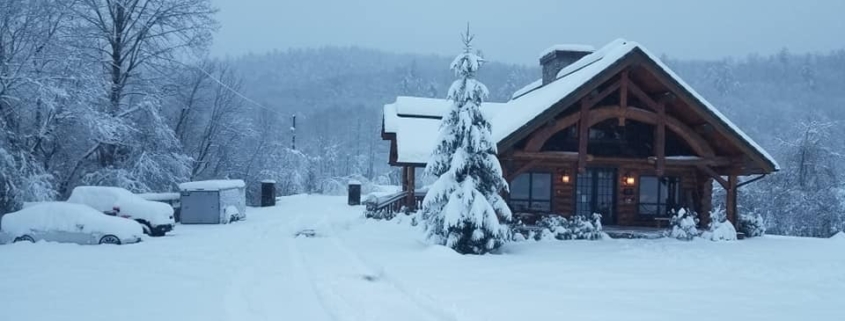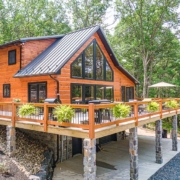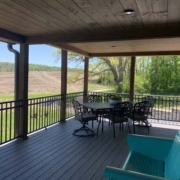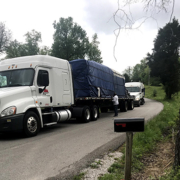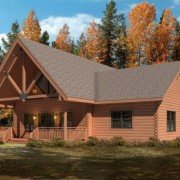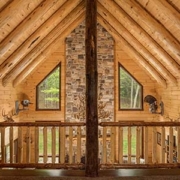Preparing for Winter Power Outages
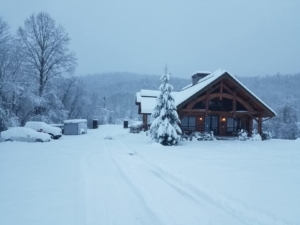 There are many benefits to living in the woods, but sometimes reliability of power isn’t one of them. There was a time not long ago when it seemed as though anytime the wind gusted above five miles an hour, our electricity was certain to go out. It almost became a family game, each person guessing how long it would be until the lights flickered back on. Would it be one hour? Ten hours? Two days? Our record was a week.
There are many benefits to living in the woods, but sometimes reliability of power isn’t one of them. There was a time not long ago when it seemed as though anytime the wind gusted above five miles an hour, our electricity was certain to go out. It almost became a family game, each person guessing how long it would be until the lights flickered back on. Would it be one hour? Ten hours? Two days? Our record was a week.
We never quite realize how much our lives depend on electricity until it’s no longer there. And, in the dark days of winter, this realization is even more eye-opening. From needing lights earlier in the evening to circulators moving heat throughout our homes to suddenly becoming aware that our smartphone is about to die and we still haven’t posted photos of our Christmas cookies, winter is an important time for the power to be working. But, what happens when it’s not?
Preparing for Winter Power Outages
Being prepared for the slightly-possible or even the unlikely is always a good mantra, whether you’re traveling abroad or staying close to home. Always keep your house stocked with items that can be helpful in an emergency. You might not need them for short-lived power outages, but if you’re snowed in after a blizzard, you’ll be glad you did.
- Water – It is recommended that you stock one gallon of water per person per day for at least three days (or, 3 gallons per person in the home, minimum).
- Food – At least a three-day supply of non-perishable food for all people (and pets) in the home.
- Blankets – Extra blankets are always good to have on-hand during the winter, especially if your source of heat depends on electricity.
- Flashlights & Batteries – With the gains in technology over recent years, good quality LED flashlights are increasingly cheaper to come by. LED lights can offer greater output over longer times, meaning you’ll eat through less batteries while experiencing brighter illumination compared to a similarly-powered non-LED light.
- Games/Activities – If you’ve ever lived through substantial mid-winter power outages with kids, you know how stir-crazy they can become. Games or other fun activities not only keep everyone entertained but can help build lasting memories as well. No kids in the house? Well, a good game of cards or chess betwixt adults is rarely a bad idea.
- First Aid Kit – While this should already be a part of every household, it can be especially beneficial during power outages when help might not be readily available. Be sure to stock bandages and supplies to treat minor wounds, or, if you’re more removed from civilization, materials to help stabilize more serious injuries and illnesses until emergency help can arrive.
Go Old School
For some, power outages are the perfect opportunity to live as our ancestors did years ago. Cooking over camp stoves and open fires has been a power-outage tradition in our household. If you have a fireplace or a wood stove, it can serve multiple purposes, from providing heat to cooking and baking. Nothing tastes better than a wood-fired omelet in January.
Old-fashioned kerosene (or refined oil) lamps and lanterns are excellent pieces of functional rustic décor in times like these. Cheaper than batteries and more inviting than a flashlight, they are sure to have you feeling like a homesteader on the Northwest Territory in no time!
Make Your Own Power
We’ve come to rely so heavily on “the grid” that we don’t even think about it maybe not being there. As a small child living overseas, my family’s only source of power was from an old diesel Lamborghini generator in the shed out back, and when it went off, everything went off. Moving back to the United States where electricity was at your fingertips 24/7 was something new (though incredibly convenient). No more 55-gallon drums of fuel, no more soothing throb of an engine while I drifted off to sleep…just the buzz of the fluorescent light above the kitchen table.
Whole-home standby generators are growing in popularity across the country, especially with homeowners living in more remote locations. These powerful systems automatically start up when the grid goes down and produce enough electricity to run your entire house as though nothing has happened. While they can be expensive to install, they offer tremendous convenience and peace of mind.
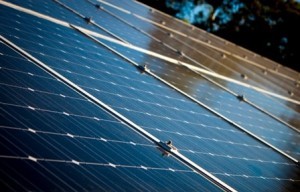 Those working with a smaller budget may be interested in smaller capacity portable generators. Though they may not be able to run every electrical appliance in your home at the same time, they will enable you to run the most important ones long enough to make it through the crisis. It is best to take inventory of what appliances and electronics you will need during these times to get a better picture of the size generator you should buy.
Those working with a smaller budget may be interested in smaller capacity portable generators. Though they may not be able to run every electrical appliance in your home at the same time, they will enable you to run the most important ones long enough to make it through the crisis. It is best to take inventory of what appliances and electronics you will need during these times to get a better picture of the size generator you should buy.
And, still there are others who have turned to alternative energy sources such as solar panels or windmills with battery backup. These options are great not only for emergencies but can also help alleviate energy costs year round.
As with any major electrical upgrade or installation, though, please be sure to consult a knowledgeable professional to avoid potential catastrophe.
So, before we get much further into this wintry season, be sure to stock up on the essentials, have the camp stove on standby, and be ready for the adventures (and memories) that lie ahead!

